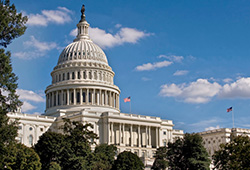 On September 17, 2015, Janet Woodcock, M.D., the director of the FDA’s Center for Drug Evaluation and Research, testified at a congressional hearing on the topic of biosimilars. A link to her written testimony is provided here, and a link to the video of the Q&A session is provided here.
On September 17, 2015, Janet Woodcock, M.D., the director of the FDA’s Center for Drug Evaluation and Research, testified at a congressional hearing on the topic of biosimilars. A link to her written testimony is provided here, and a link to the video of the Q&A session is provided here.
Dr. Woodcock answered questions from Senators Cassidy, Murphy, Hatch, Warren, Scott, Kirk, and Alexander, members of the Committee on Health, Education, Labor, and Pensions’s Subcommittee on Primary Health and Retirement Security. A few highlights of the Q&A are below.
- Interchangeability
- Dr. Woodcock said that FDA would likely arrive at approval of an interchangeable biosimilar in the future, but reiterated FDA’s concern that right now, small differences in manufacturing, even between batches of a branded product, might result in different immune responses from the human body.
- Guidances on labeling and interchangeability
- FDA is working hard on these, but Dr. Woodcock could not commit to a date when FDA would publish them.
- Senators Warren and Kirk expressed concern that the FDA had not provided guidances on these issues despite having a decade of data to work with, considering that Europe approved a biologic pathway in 2003, and its first biosimilar in 2006. Senator Warren in particular was very concerned with FDA’s delay leading to patients having to pay a very high cost for biologics, with no access to more affordable biosimilars.
- Dr. Woodcock responded that the FDA’s primary concern here was the need to “get the science right.” She noted that the Europeans had a six year head start, and that some of the early EU biosimilar approvals had been previously approved in the US as small molecules.
- Education on biosimilars
- The FDA has laid out a plan of campaigns and focus groups to facilitate acceptance of biosimilars by health care professionals, but may need to target certain subspecialty groups one by one, for example, by offering CME credits.
- FDA naming guidance
- FDA had worked with the WHO on its recent draft naming guidance for biosimilars. With regard to naming, Dr. Woodcock emphasized the ability to pull a biosimilar from the market if there is a problem.
- Substitution
- Dr. Woodcock noted that state law governed pharmacy substitution, and that the Purple Book was an aid to pharmacists to determine substitutability. She thought that some of the substitution laws are facilitating access to biosimilars and some were not, but noted that similar issues arose in the context of generic small molecules some decades ago.
Stay tuned to the Big Molecule Watch for more updates on biosimilar legislation.
